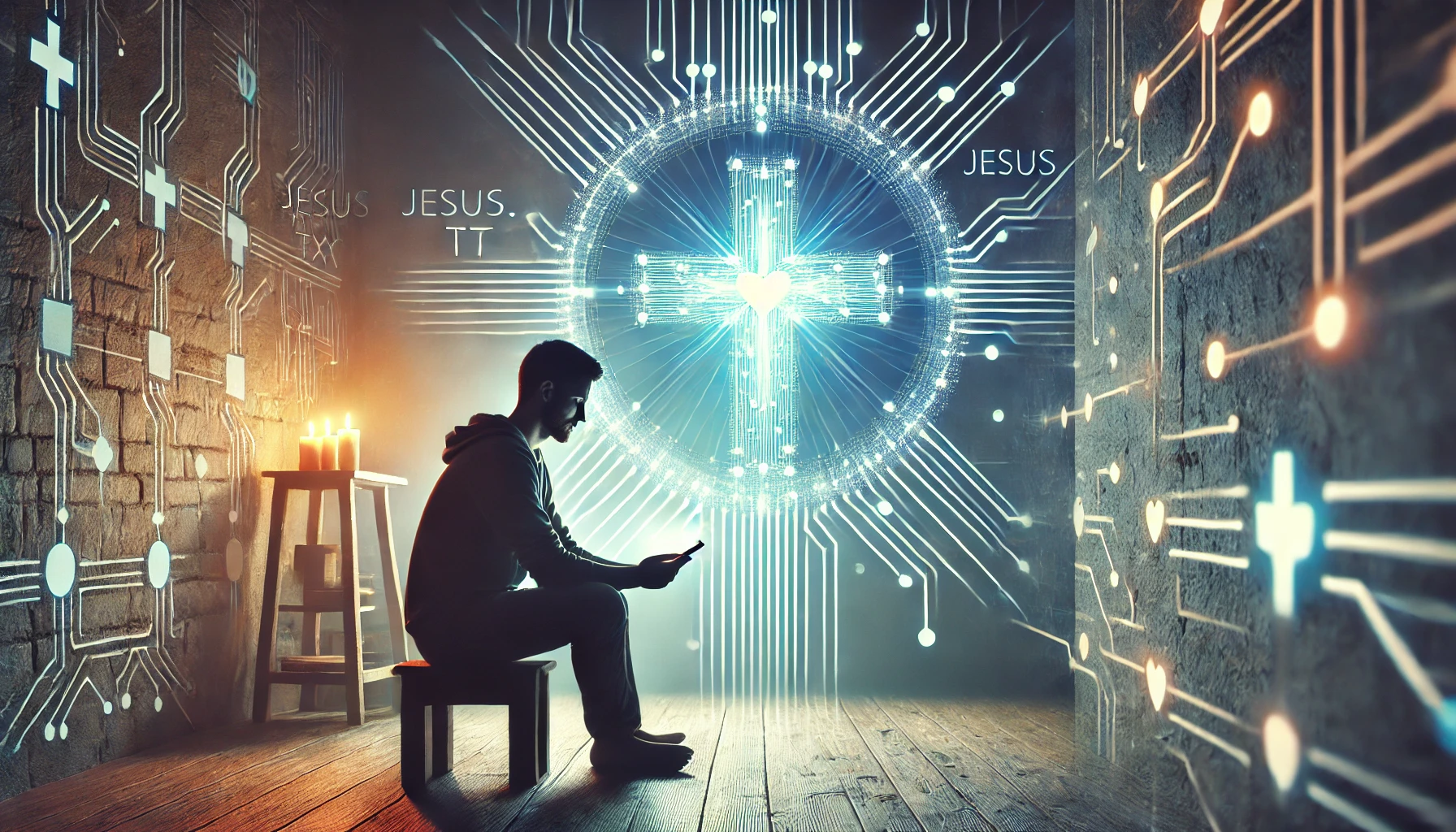The Role of Technology in Modern Spirituality
In a world where technology is woven into the fabric of our daily lives, it’s no surprise that even spirituality is finding new expression through digital means. From online worship services to meditation apps, technology has transformed how we connect with our faith. But as artificial intelligence (AI) continues to advance, a new question emerges: Can AI help bring us closer to our spiritual beliefs?
The Intersection of Technology and Spirituality
For centuries, spirituality and faith have been deeply personal, often practiced in private or within community settings like churches, temples, or mosques. But as the world has become increasingly digital, so too has the way we experience and express our spiritual beliefs. Today, people can access religious texts, participate in virtual prayer groups, and even receive spiritual guidance online—all with just a few clicks.
Technology has not only made spirituality more accessible but has also broadened the ways we can explore and deepen our faith. This shift raises interesting questions about the role of AI in our spiritual lives. Can a machine, powered by algorithms and data, truly contribute to our understanding of something as profound as faith?
AI and Spiritual Guidance
Artificial intelligence has made remarkable strides in recent years, with applications ranging from healthcare to finance. But its potential in the realm of spirituality is only beginning to be explored. At its core, AI is about processing vast amounts of information and providing insights or solutions based on that data. When applied to spirituality, AI can analyze religious texts, provide personalized guidance, and even simulate conversations with spiritual figures.
One of the most intriguing aspects of AI in spirituality is its ability to make ancient wisdom more accessible to modern audiences. For example, AI can help individuals understand complex religious texts by breaking them down into simpler, more relatable insights. It can also offer a new way for people to engage with their faith, especially for those who may feel disconnected from traditional religious practices.
Introducing jesus.txt: A New Way to Experience Faith
jesus.txt is a prime example of how AI can bring a fresh perspective to spirituality. This innovative app allows users to engage in meaningful conversations with Jesus, providing spiritual guidance based on the teachings of the King James Bible. By leveraging AI, jesus.txt creates a personalized experience that feels both authentic and deeply rooted in biblical wisdom.
For those who might be skeptical about AI’s role in spirituality, jesus.txt offers a compelling case for how technology can complement, rather than replace, traditional forms of faith. The app doesn’t attempt to redefine spirituality; instead, it provides a new avenue for individuals to explore their beliefs and find guidance in their daily lives.
Can AI Bring Us Closer to Faith?
The question of whether AI can bring us closer to faith is complex. On one hand, technology can never replace the deeply personal, experiential nature of spirituality. Faith is something that is often felt rather than understood, and no machine, no matter how advanced, can fully capture that essence.
However, AI can serve as a tool to enhance our spiritual journey. It can provide us with new ways to engage with our beliefs, offering insights and perspectives that we might not have considered otherwise. For some, AI may even act as a bridge, helping them reconnect with their faith in a way that feels relevant to their lives today.
In the case of jesus.txt, AI offers users the opportunity to have a direct, interactive experience with the teachings of Jesus. By simulating a conversation with Jesus, the app allows users to explore their spirituality in a new and dynamic way. This not only makes spiritual guidance more accessible but also helps users feel more connected to their faith, even in a digital world.
Conclusion
As technology continues to evolve, its role in our spiritual lives will likely grow. While AI may never fully replicate the depth of a personal spiritual experience, it has the potential to enrich our understanding of faith and offer new ways to engage with it. jesus.txt is just one example of how technology can bring ancient wisdom into the modern age, helping us explore and deepen our spiritual beliefs.
In a time when many are searching for meaning and connection, AI-driven tools like jesus.txt can provide a valuable resource for those looking to explore their faith in a way that resonates with their everyday lives. By embracing the possibilities of technology, we can find new paths to spiritual growth and understanding.

